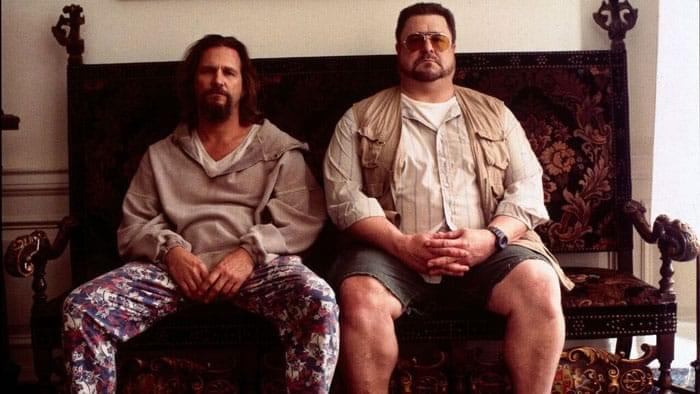
Everyone loves a good English crime movie…well, a lot of people do anyways. But an English crime movie that’s only 15 minutes long? Is that possible? Doug Brunell seems to think so, so we had to get a hold of filmmaker Evan Richards to find out just how he did it.
What inspired the story for “Woman X”?
Woman X was based on a short story I wrote a few years back. Actually it was originally called “X Woman”. I flipped the X over for the filmed version, because I thought it suited the film noir style more and gave a better impression regarding the mysterious element of my lead female character. Plus I think it just looks better!
The actual idea came from the fact that you encounter people everyday and you never know what their complete personal history is until you sit down and talk with them. And even then, people hold back information, as they should.
Power was also a theme I wanted to work with, as well as the social classes – the strata of our metropolitan cities around the world. How there’s a fair amount of disparity and lack of compassion between those who have and those who don’t have. I liked working with the conceit of someone who’s in complete control of their environment, yet introduced into a new situation, they completely fall apart at the seams, while still trying to maintain a sense of dignity.
Have you received any filmmaking training or did you just go for it?
I took some courses at AFI, at UCLA extension, but mostly I think it was that Super X-RAY BEAM machine that my father – who’s a mad scientist – invented. He pointed it at me when I was a little kid, switched it to Filmmaker, put the effectiveness to 11, and shot that beam into my brain. Luckily, it was set to Filmmaker, as the machine also had Accountant and Dictator as categories. But seriously…
I agree with that school of thought, pick up a camera and just do it yourself. The technology is here. It’s how you use it. For years I would take my video camera and make these really ridiculous but totally uncensored short films. Goofy, silly things that were great training tools for the bigger projects. I also collaborated with various friends who also wanted to excel in this profession. I’d spend all my time on these projects. I think it helps if you’re obsessed with the vocation you’ve chosen.
Also, I suppose being in the business as a child-actor helps. Also, reading tons and tons of books about the making of other classic films is inspiring. And nowadays, DVD commentaries on Special Editions of home feature releases from the director and writer can also be very beneficial.
But ultimately, learn as much as you can about all facets of the industry, especially the business side. Many people make their films without having a clue on how to eventually sell and exploit their product. Besides the creative side, which of course takes priority, I think it’s imperative to know how to get your movie seen. Either you as the director/writer should know, or have a producer who has that knowledge and ability.
Nothing worse then having your fine film dusted off and brought out every other family reunion Christmas or so, to remind your relatives that you’ve actually accomplished something as a filmmaker. I’ve seen many friends languish unfairly in that horrible purgatory. They make a film and then haven’t a clue what to do with it.
Either try and obtain a distribution company, or perhaps set up a website and sell the movie yourself. But be ambitious and never let the word “no” discourage you from attaining a goal. Unless it’s spelled “know”.
You shot “Woman X” on 35mm. Do you prefer film or digital video?
No! Not that question! I refuse to answer it! No! Never! Okay, well, I’m a purist like Spielberg. I think film is the ultimate canvas to work on. Though with technology advancing practically every hour of the day, digital video isn’t that bad. Besides the common digital video format, filmmakers should try out DigiBeta cameras.
I live between the States and London and in London they use DigiBeta for many of their short film productions. DigiBeta’s quality stands somewhere between digital video and HD. A DP might have more leeway – lighting wise – with DigiBeta. Regarding HD, I think it’s great for films with special effects, like “STAR WARS” and the “SPY KID” movies. It really lends itself to that otherworldly milieu.
I’m sure I’ll use some type of video camera on one of my projects. But it depends on the genre and the sort of atmosphere I’m trying to evoke.
What were some important lessons you learned in making this film?
Feed your crew! Don’t skimp on meals. I got a great caterer. Happy stomachs. Happy thoughts. No mutinies. I had the best, hard working crew and cast, and a great producer, Ronni Bloch. All those involved were
extremely supportive, very understanding and very
talented.
But if in the event you have a few bad apples on the crew, get rid of them immediately! There are people out there who want to work hard and be a contributing member to whatever project you’re working on. Those people should get the chance, not the lame brain that said he’d show up and drive the equipment to the set, but didn’t have a driver’s license.
I’m really into preparing and I’m glad that we did an abundance of preparation for Woman X. I always think that preparation and back up plans are of the utmost necessity. That way, when you get to the set your mind can be focused on creating.
Get the rest of the interview in part two of EVAN RICHARDS TALKS “WOMAN X”>>>
